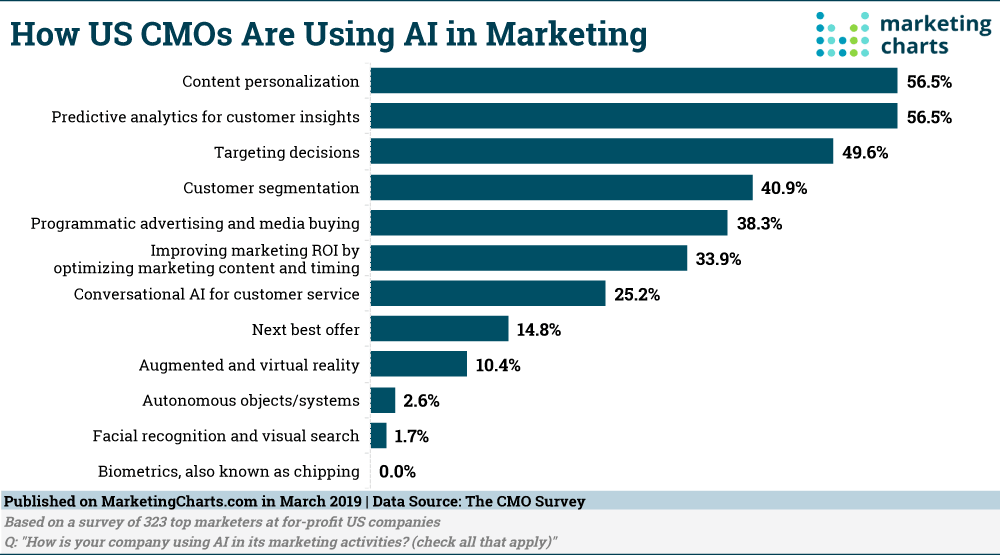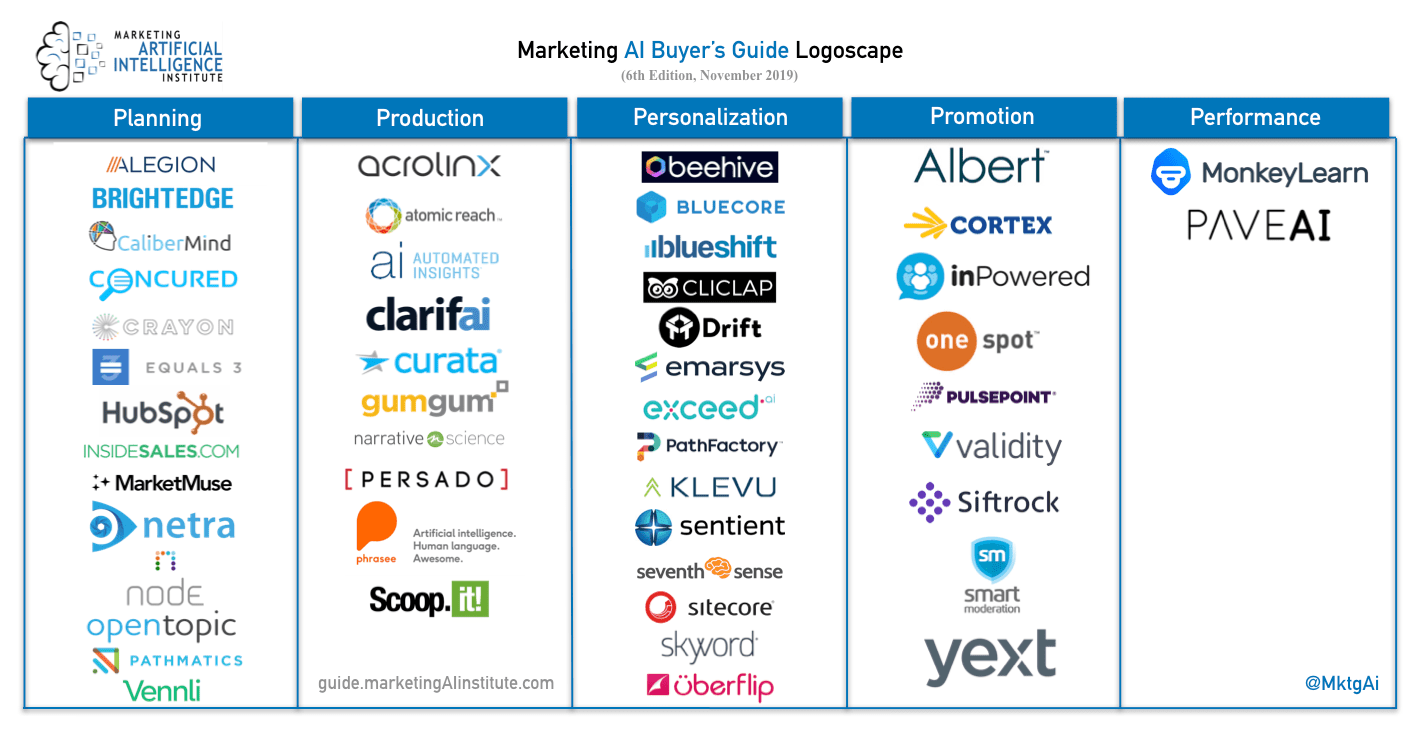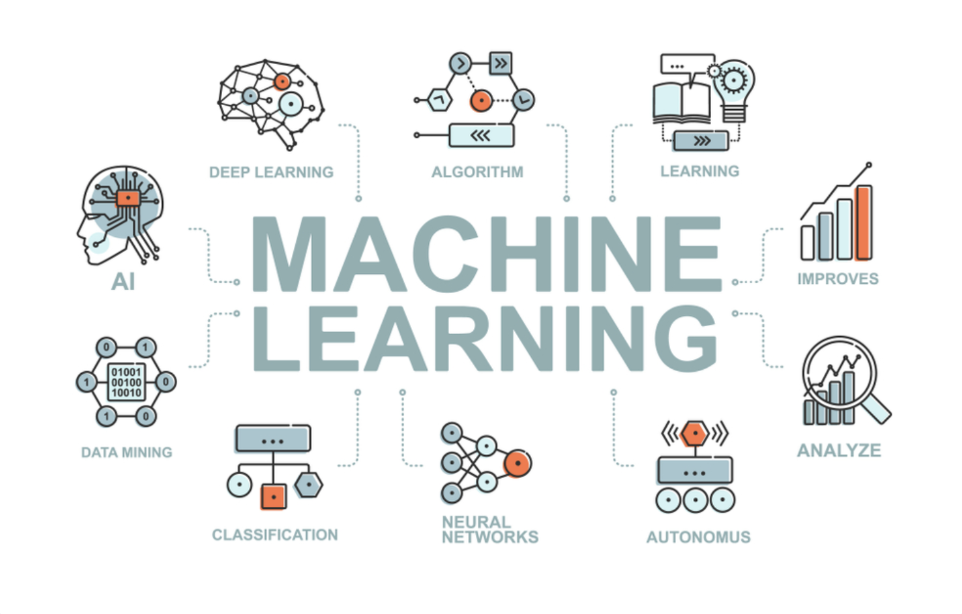AI in marketing is on the way to transforming the marketing world as we speak. It is one of the drivers of the growth of Marketing Technology 101: Everything You Need To Know (MarTech) and offers marketers a wealth of tools for leveraging data about customers to understand their preferences and journey with your products.
More importantly, it allows brands to keep up with customers’ increasingly high standards and expectations. Customers want their interactions with brands to feel personal and relevant, and AI enables a level of targeting and tracking that any marketer should get excited about.
But distinguishing between what can be implemented now and what will be possible in the near future is important, as the field of AI is in constant evolution. Here, we break down the different ways marketers can use AI to streamline operations, deliver better customer experiences and channel data into insight.
Defining AI
AI can be defined as a subset of computer science through which machines display “intelligence” by making predictions and decisions. AI acquires intelligence based on the analysis of data sets, a process enabled by algorithms that tell the machine how to complete tasks and interpret information.
The most basic form of this is machine learning, which uses historical data to predict future outcomes. As the machine acquires more data, it becomes better at making predictions.
AI already driving marketing budgets, data-driven insights
Recent studies reveal the important role that AI plays in driving marketing budgets and business growth strategies. Marketers clearly believe that AI is a valuable tool: 72% of marketers surveyed in a PWC study view AI as a “business advantage.” By 2021, organizations are projected to spend $57 billion on AI platforms for marketing.

And organizations are already seeing the results of implementing AI: 3 of 4 companies using AI have reported a boost in sales of at least 10%. 75% of organizations in another study say AI has driven customer satisfaction by at least 10%.
In terms of how CMOs are currently implementing AI, another recent survey found that many are using it for content personalization (56.5%), predictive analytics (56.5%), and targeting decisions (49.6%). But those are just a few of the ways AI can support marketing efforts today.
AI has 8 broad applications in marketing today
Marketers are accumulating data at an astonishing pace with the intention of harnessing it into better targeting. But sometimes the mere volume of data that organizations acquire makes it difficult for them to know how to make use of it. AI is incredibly helpful in this respect, as it enables real-time analysis of large volumes of data, automate tasks, and generate insight.
1. Market intelligence and insight: With the help of algorithms, machine learning enables in-depth analysis of complex data sets from data management platforms (DPMs), data warehouses, or other repositories, connecting the dots to support marketing intelligence and forecasting in a way that humans cannot.
2. Customer profiles and personas: Through the analysis of on-site interactions, purchasing history, referral sources and geo-specific behavior, AI can help brands form a 360-view of their customers and match them with personalized content and promotions.
3.Lead generation and sales:Machine learning and predictive analytics can help marketers automate the process of generating and scoring leads. They also help brands keep customers engaged through predicting turn: through analyzing users’ engagements with brands, they can tell when someone is about to drop off. Brands can then attempt to re-engage these users with notifications and emails.

4. Media buying: AI automates the laborious process of media buying and ensuring that ads are seen by relevant audiences through programmatic advertising and optimization and measurement platforms. With almost no human input, AI helps marketers analyze, manage, and measure the performance of ad campaigns.
5. Customer experience: According to Gartner, 85% of customer service inquiries will be handled via AI by the end of 2020. AI is increasingly being implemented in the customer experience space to support improved call centers and automated customer service via chat bots and digital assistants.
6. User experience: AI helps marketers optimize user experience on websites through analyzing data about single users’ behavior to personalize content, promotions, and notifications. A study from Evergage found that 33% of marketers are using AI for more personalized website experiences, and that 63% of them noted increased conversion rates, while 61% assert that customer experiences have improved.

7. Natural language generation and content creation: There are a variety of applications for AI in the realm of content. Using simple rules and formats, AI-enabled tools and platforms can author content such as business reports, product descriptions, stock market reports, and sports recaps without human input. Through setting the rules and formats, marketers can dictate the tone and style that the content takes.
AI-enabled content platforms can also make suggestions about what kinds of content formats and topics a brand’s target audience is likely to engage with through tracking users’ online activity.
8. Chatbots: While chatbots technically fall under customer experience, they have changed the marketing world in such a way that they deserve their own dedicated text. AI-enabled bots are successfully delivering customer service for thousands of global brands through natural language processing and machine learning.
Natural language processing allows machines to interpret the meaning of written and spoken speech and respond accordingly, all without human intervention. The machine can track the effectiveness of its responses and adapt accordingly, improving as it has more conversations.
Marketers must self-educate before selecting vendors
Marketers considering ways to implement AI in their organization have to be careful when evaluating different products and platforms. Many use the term “AI” loosely, mislabeling tools that implement data processing and analytics as “AI.” Smart organizations can bring in experts to educate and advise them as they consider the alternatives.
Ask questions about the data sets they use and pay attention to whether they have data scientists on staff. Request a demo and confirm what deliverables and KPIs will be included in their activities.
Make sure your data is clean and high-quality
While AI might seem like magic, it still depends on effective human inputs: namely high-quality data that it can learn from. If marketers don’t format data in a way it can be processed, or you do not have the infrastructure to process it correctly, it will not produce an “intelligent” machine.
To this end, marketers must innovate and collect more annotated data that can be tagged to train AI systems. Measuring only clicks is not going to create a rich enough data set to use for impactful AI.
Remember the human touch
AI will be able to replace humans in many, but not all, of the brand interactions customers expect. Consumers are excited about AI – an Acquia study found that 53% of consumers say they are “looking forward to artificial intelligence making interacting with brands a better experience.” At the same time, the study found that 85% percent claim that “a human touch is needed, in addition to technology, for a positive customer experience.”
Marketers should only use AI where it will enhance customer experiences, and it turns out there are plenty of situations in which people prefer to speak to a human than a machine. 75% of the respondents to the Acquia survey agreed that “the problem with automated experiences – interacting with technology instead of a real human – with brands is they are too impersonal.”
The future of AI in marketing depends on smart investments
Implemented correctly, AI will offer us tools that make our work better, easier, and more enjoyable. Marketers will be able to focus on the strategic, creative elements of their work and leave the tedious and time-consuming tasks to a well-trained machine.
All of this, though, depends on marketers educating themselves so that they can help their organizations invest in smart solutions. As AI evolves at a rapid pace, marketers will face increasing pressure to keep up.a








